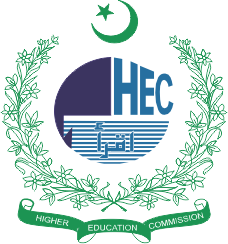Gendered Higher Education and Women Academicians’ Career Development
DOI:
https://doi.org/10.63062/trt/V24.076Keywords:
Women, Higher Education, Representation, Research, CareerAbstract
Gendered culture in higher education attracted due attention of researchers across the globe. It vividly shaped the academic environment, influenced women’s experiences and perpetuated inequalities. This research provides insights on the impact of gendered culture on women academicians’ career development in higher education of Azad Jammu and Kashmir (AJK). We aimed to highlight the gendered barriers they face in advancing their careers in higher education. We used quantitative epistemologies and employed a cross-sectional approach. We selected a sample of 30 women academics by means of simple random sampling technique and collected data by using questionnaire from one of the public sector universities of AJK. The findings revealed a mixed bag of findings, including disparities in representation, research productivity, promotion, and supervision as well as in familial responsibilities. Based on the findings, we conform the argument of Acker (1990) that higher education is gendered space where men’s hegemony contributes to maintain the gender segregation in the organization of higher education. It is suggested to immediate measures to elevate women academicians’ status in higher education of AJK.
References
Abdullah, F. A., & Ullah, H. U. (2025). Lived experiences of women academicians’ research productivity in higher education of Azad Jammu and Kashmir. https://doi.org/10.21203/rs.3.rs-6328320/v1
Abdullah, F., & Nisar, N. (2024). Women Academicians and Autonomy: Constructing Identities in Higher Education. International Journal of Social Sciences Bulletin 2 (4), 1053, 1060.
Abdullah, F., & Kauser, S. (2023). Students’ perspective on online learning during pandemic in higher education. Quality & quantity, 57(3), 2493-2505. https://doi.org/10.1007/s11135-022-01470-1
Abdullah, F., Ahmed, N., Shaheen, I., & Sultana, R. (2024). Women academicians’ career progression in higher education of Azad Jammu and Kashmir. Regional Lens, 3(1), 86-94. https://doi.org/10.62997/rl.2024.31042
Abdullah, F., Habib, A., & Gillani, N. (2021). Migration, Remittances and Wellbeing of Recipient Families. Migration, Journal of Critical Reviews, 8(02), 2021.
Abdullah, F., Matloob, T., & Malik, A. (2024). Decision-Making Trajectories of Working Women in Azad Jammu and Kashmir. Policy Research Journal, 2(4), 2189-2197. https://doi.org/10.21203/rs.3.rs-6328320/v1
Acker, J. (1990). Hierarchies, jobs, bodies: A theory of gendered organizations. Gender & society, 4(2), 139-158. https://doi.org/10.1177/089124390004002002
Bates, T. (2022). Rethinking how we work with Acker's theory of gendered organizations: An abductive approach for feminist empirical research. Gender, Work & Organization, 29(4), 1041-1064. https://doi.org/10.1111/gwao.12795
Bhatti, A., & Ali, R. (2020). Gender, culture and leadership: Learning from the experiences of women academics in Pakistani universities. Journal of Education & Social Sciences, 8(2), 16-32.
Blagojević, M. (2009). Knowledge production at the semiperiphery: A gender perspective. Belgrade: Institut za kriminološka i sociološka istraživanja.
Clark-Saboda, J. L., & Lemke, M. (2023, May). Revisiting Acker’s gendered organizational theory: What women overcome to stay in the superintendency. In Frontiers in Education (Vol. 8, p. 1160225). Frontiers Media SA. https://doi.org/10.3389/feduc.2023.1160225
CohenMiller, A. S., Demers, D., Schnackenberg, H., & Izekenova, Z. (2022). “You are seen; you matter:” Applying the theory of gendered organizations to equity and inclusion for motherscholars in higher education. Journal of Women and Gender in Higher Education, 15(1), 87-109. https://doi.org/10.1080/26379112.2022.2025816
De Welde, K., & Stepnick, A. (2023). Disrupting the culture of silence: Confronting gender inequality and making change in higher education: Taylor & Francis.
Graves Jr, J. L., Kearney, M., Barabino, G., & Malcom, S. (2022). Inequality in science and the case for a new agenda. Proceedings of the National Academy of Sciences, 119(10), e2117831119. https://doi.org/10.1073/pnas.2117831119
Hakiem, R. A. A. D. (2023). ‘I can’t feel like an academic’: gender inequality in Saudi Arabia’s Higher Education system. Higher Education, 86(3), 541-561. https://doi.org/10.1007/s10734-022-00914-9
Johnson, S. (2022). Women deserve better: A discussion on COVID‐19 and the gendered organization in the new economy. Gender, Work & Organization, 29(2), 639-649. https://doi.org/10.1111/gwao.12785
Johri, S., Carnevale, M., Porter, L., Zivian, A., Kourantidou, M., Meyer, E. L., ... & Skubel, R. A. (2021). Pathways to justice, equity, diversity, and inclusion in marine science and conservation. Frontiers in Marine Science, 8, 696180. https://doi.org/10.3389/fmars.2021.696180
Lunn, M. (2007). Women academicians: Gender and career progression. Jurnal Pendidikan, 32, 77-90.
Naseem, R., Khan, K. I., Naseem, S., & Akhtar, Q. (2024). Female academics in higher education institutes and their work-life balance strategies: a voiceless saga. International Journal of Knowledge and Learning, 17(6), 573-595. https://doi.org/10.1504/IJKL.2024.141819
Pasque, P. A., & Nicholson, S. E. (Eds.). (2023). Empowering women in higher education and student affairs: Theory, research, narratives, and practice from feminist perspectives. Taylor & Francis.
Schnackenberg, H. L., & Simard, D. A. (Eds.). (2018). Challenges and opportunities for women in higher education leadership. Information Science Reference
Schuster, J. H., & Finkelstein, M. J. (2008). The American faculty: The restructuring of academic work and careers. JHU Press.
Shahzad, M., Abdullah, F., Fatima, S., Riaz, F., & Mehmood, S. (2020). Impacts of parental support on academic performance among secondary school students in Islamabad. J Soc Sci, 1, 228–231.
Tang, L., & Horta, H. (2021). Women academics in Chinese universities: A historical perspective. Higher Education, 82(5), 865-895. https://doi.org/10.1007/s10734-020-00669-1
Teferra, D., & Altbachl, P. G. (2004). African higher education: Challenges for the 21st century. Higher education, 47, 21-50. https://doi.org/10.1023/B:HIGH.0000009822.49980.30
Turner, C. S. V. (2002). Women of color in academe: Living with multiple marginality. The Journal of Higher Education, 73(1), 74-93. https://doi.org/10.1080/00221546.2002.11777131
Ullah, H., Abdullah, F., Ahmad, A., & Ali, R. (2017). Gender representation in mathematics textbooks in Azad Jammu & Kashmir. International Journal of Innovation in Teaching and Learning (IJITL), 3(2). https://doi.org/10.35993/ijitl.v3i2.320
Vartika. (2022). Understanding Gender and Organizations: A Literature Review. Leading With Diversity, Equity and Inclusion: Approaches, Practices and Cases for Integral Leadership Strategy, 167-181. https://doi.org/10.1007/978-3-030-95652-3_11
Williams, C. L. (2023). Feminist sociology and the future of work: A tribute to Joan Acker and the AJS special issue on women. American Journal of Sociology, 129(3), 948-954. https://doi.org/10.1086/728971
Downloads
Published
Issue
Section
License

This work is licensed under a Creative Commons Attribution-NonCommercial 4.0 International License.





